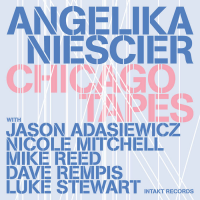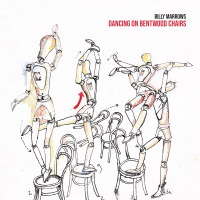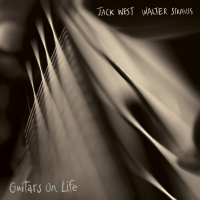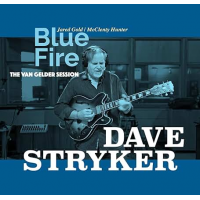Home » Jazz Articles » Album Review » Hank Mobley: The Complete Hank Mobley Blue Note Sessions 1963-70
Hank Mobley: The Complete Hank Mobley Blue Note Sessions 1963-70
Mosaic's spring 2020 release offers a superb bookend to one of their best projects, namely The Complete Blue Note Hank Mobley Fifties Sessions. That 1998 set collected the early masterpieces from the renowned tenor saxophonist up to 1958's Peckin' Time. Fast forward to 1963 and we get the rest of Mobley's prime output on the newly issued The Complete Hank Mobley Blue Note Sessions 1963-1970. Yes, there is a five-year gap between the last record on the former and the first record on the latter. But as Cuscuna has explained, he felt that the albums not included are widely available via several other sources including a few vinyl reissues. For the record, those albums are Soul Station, Roll Call, Workout, and Another Workout.
One of the best services Mosaic provides with this new edition is to offer in one place the entire contents of three of Mobley's best sessions. For unknown reasons, producer Alfred Lion decided to mix the contents of Mobley's dates from March and October 1963, along with one from February 1965 across the albums No Room For Squares and The Turnaround. Then, in 1989 the CD release Straight, No Filter included a few more tracks from these holdings. Thankfully, the complete contents of these dates are presented here in chronological order. Inexplicably, it was a long time coming.
The March 1963 session might be one of Mobley's best, with the big-name line up including Donald Byrd, Herbie Hancock, and Philly Joe Jones. The vinyl reissue label Music Matters Jazz deemed the music so valuable that it issued the entire contents in 2012 as the album The Feelin's Good. Even if Mobley had not been the supreme stylists he was as a tenor player, he would be remembered for his unique compositions such as "Old World, New Imports," "Up a Step," and "East of the Village." All three are heard here and if you made a side-by-side comparison with the aforementioned vinyl reissue, you would likely agree that Mosaic's CD mastering is every bit the equal.
For several of his mid-sixties sessions, Mobley paired up with outstanding trumpeter Lee Morgan and it was a sagacious combination. Mobley's coolness and buttery tone contrasted perfectly with the bold and brash character of the effervescent Morgan. Perhaps, this is best heard on Dippin', a bristling hard bop classic buoyed by the piano of Harold Mabern and drummer Billy Higgins. Cut six months later at the end of 1965, A Caddy for Daddy takes on a hypnotic character and different vibe thanks to the presence of pianist McCoy Tyner. Adding Curtis Fuller to the mix also brings forth further harmonic textures.
One of his most revered large group dates, A Slice of the Top boasts a five-horn front line arranged by Mobley and Duke Pearson. The writing and playing is superb throughout and again Tyner proves to be a golden asset. These sides, however, were not released at the time and didn't see the light of day until 1979. In terms of sound quality, the music has had a checkered past. Up until the set at hand, the best way to hear this music was on a rare Japanese LP from King Records. Mastering engineer Malcolm Addey pulled out all the stops on this one, although his work throughout is simply amazing.
Other dates that were shelved until later years include Third Season, Far Away Lands, and Thinking of Home. The music is of such high caliber that one has to wonder why it was not deemed worthy of release. Although we will never know for sure, the likely answer is saturation of the market. Alfred Lion was recording too many sides and as he prepared to sell his beloved label to Liberty Records in 1967, the stage was set for many of his pet projects to be put on a back burner.
Of the later sides released at the time, Hi Voltage is definitely one of the strongest and it has not received due respect up to this day. Further Mobley baubles are present, like "Flirty Girty" and "Advance Notice." Pianist John Hicks makes a rare Blue Note appearance and makes one wonder how valuable he might have been to the label had he been able to become part of the stable of regulars.
The posthumously issued Thinking of Home wraps things up on a melancholy note. You can hear the great chemistry being forged between Mobley and trumpeter Woody Shaw, not to mention the iconic work of pianist Cedar Walton. Sadly, this 1970 Blue Note swansong would be among the final recordings Mobley would make before his plunge into obscurity and an untimely death.
As previously mentioned, the hi-res files used by Malcolm Addey have yielded great results on these compact disc. In the digital realm, these discs now stand as the definitive versions of this music. In direct comparisons with several Japanese discs and vinyl reissues, there is little to squabble about in terms of quality. A twenty-page booklet with a wealth of Frank Wolff photos and commentary by Bob Blumenthal adds value to this eight-disc gem limited to 3,000 copies.
Personnel
Hank Mobley
saxophone, tenorFreddie Hubbard
trumpetDonald Byrd
trumpetBlue Mitchell
trumpetWoody Shaw
trumpetHarold Mabern
pianoBarry Harris
pianoMcCoy Tyner
pianoCedar Walton
pianoPaul Chambers
bass, acousticBob Cranshaw
bassRon Carter
bassPhilly Joe Jones
drumsDuke Pearson
pianoGeorge Benson
guitarSonny Greenwich
guitarJames Spaulding
saxophone, altoJackie McLean
saxophone, altoBilly Higgins
drumsCurtis Fuller
tromboneAlbum information
Title: The Complete Hank Mobley Blue Note Sessions 1963-70 | Year Released: 2020 | Record Label: Mosaic Records
Tags
PREVIOUS / NEXT
Support All About Jazz
 All About Jazz has been a pillar of jazz since 1995, championing it as an art form and, more importantly, supporting the musicians who make it. Our enduring commitment has made "AAJ" one of the most culturally important websites of its kind, read by hundreds of thousands of fans, musicians and industry figures every month.
All About Jazz has been a pillar of jazz since 1995, championing it as an art form and, more importantly, supporting the musicians who make it. Our enduring commitment has made "AAJ" one of the most culturally important websites of its kind, read by hundreds of thousands of fans, musicians and industry figures every month.











































